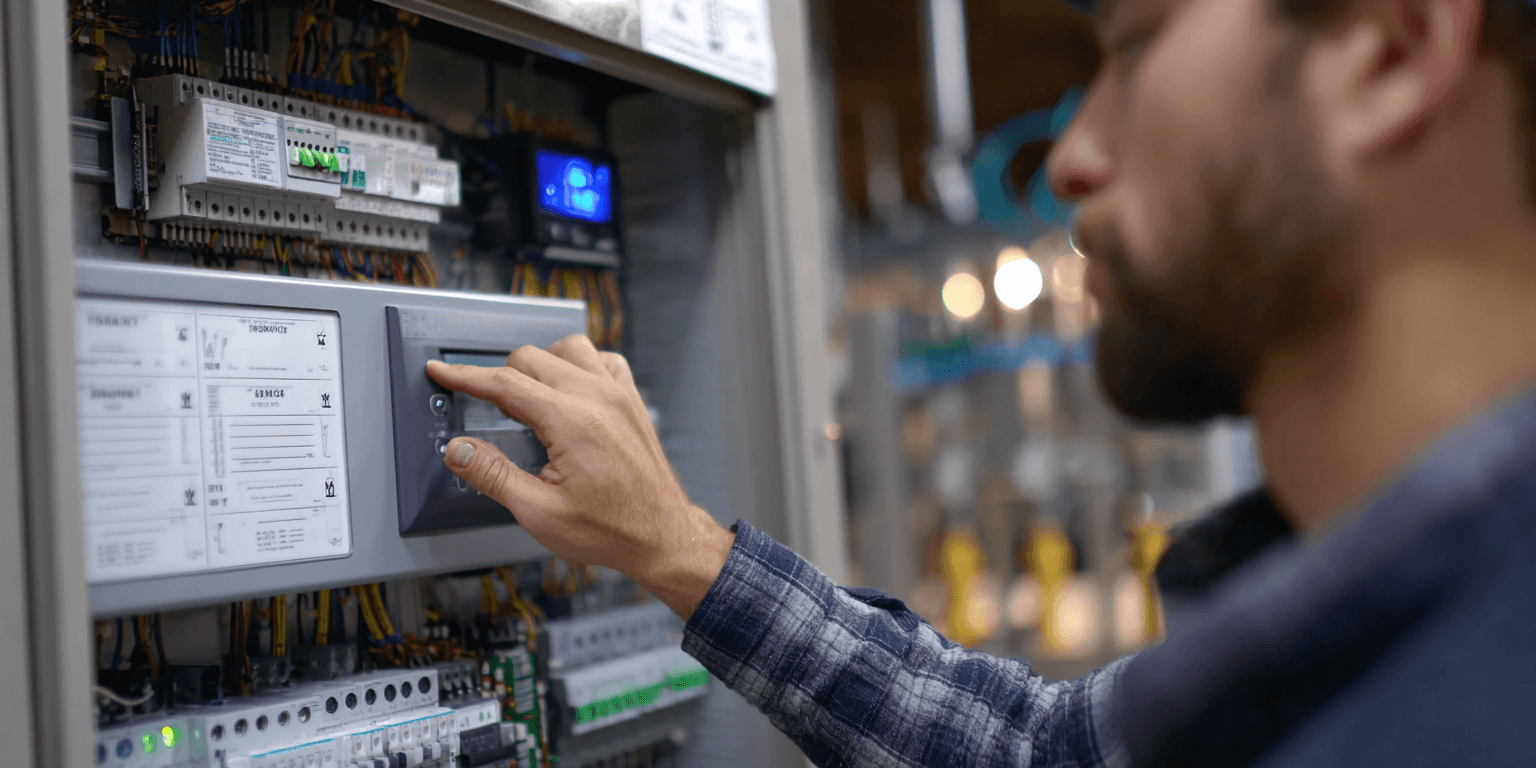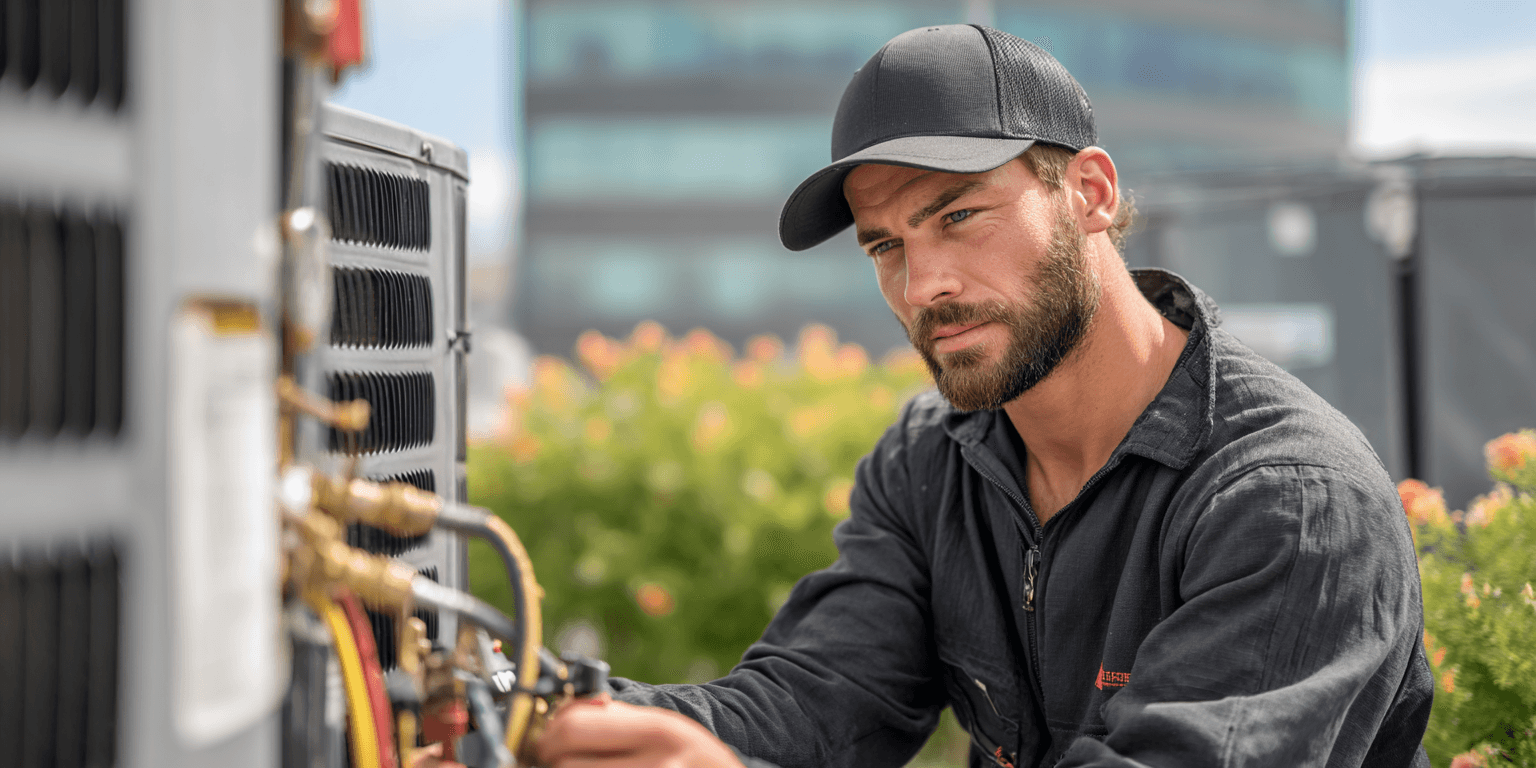Running a successful business involves more than offering great products or services—it’s also about creating a comfortable, reliable environment for your employees, clients and partners. One of the keys to maintaining a pleasant workplace is keeping your heating, ventilation and air conditioning (HVAC) systems in top shape. Scheduling regular commercial HVAC inspections ensures these systems remain dependable, helping you avoid inconvenient breakdowns that could halt daily operations or upset staff and visitors.

But commercial HVAC inspections aren’t only about comfort. They play a big part in your business’s energy efficiency. During a professional evaluation, trained technicians examine everything from air filters to control panels, searching for inefficiency or wear. If ignored, these issues can lead to wasted energy and much higher utility bills. As energy costs rise every year, making sure your heating and cooling systems run smoothly translates into significant savings and helps you meet sustainability goals.
Letting routine maintenance slide can have costly, long-term effects. Poorly maintained HVAC units draw more energy, break down more often, and could need replacing much earlier than expected. Every one of these scenarios leads to unplanned expenses and possible downtimes. Fluctuating temperatures or air quality issues can also sap employee morale, leading to reduced productivity and more sick days. Instead of letting small issues grow into larger, more expensive headaches, regular commercial HVAC inspections let you spot and solve problems while they’re still manageable—helping your business stay productive and competitive.
Pro tip: For maximum benefits, schedule a commercial HVAC inspection at least twice a year—ideally before busy heating and cooling seasons. This proactive step gives you plenty of time to address small issues now, avoid costly repairs later, and ensure uninterrupted comfort and efficiency.
A commercial HVAC inspection is a thorough process designed to check the efficiency, safety and reliability of your business’s heating and cooling systems. For anyone managing a building—whether it’s an office, restaurant, warehouse, or retail store—knowing what happens during an inspection can help you make the most of your investment and support energy-saving goals.
Inspectors start by assessing all key pieces of your heating and cooling equipment: rooftop units, furnaces, boilers, chillers, air conditioners and any related hardware. They examine ductwork for issues like dust buildup, corrosion or blockages, all of which can slow airflow and reduce your system’s overall performance. Controls such as thermostats, sensors and management panels are reviewed for accuracy and effective operation, since a faulty thermostat or sensor can lead to uncomfortable and inefficient working conditions.
Next, the inspector checks each component for signs of age, leaks or inefficiency. Using special tools, they look for things like refrigerant leaks, worn belts or loose electrical connections that might hurt performance. Minor issues, left unchecked, can grow into major problems or sudden breakdowns. Inspectors will also assess the insulation on ductwork and pipes, as damaged insulation is a common cause of energy loss in businesses. Finding and fixing these trouble spots now helps keep your energy use and costs in check.
Safety is a top priority. Inspectors ensure all equipment meets required building codes and complies with important standards. This includes checking emergency shut-off switches, proper labeling, and that your system uses approved refrigerants. They also verify that safety features—like ventilation and carbon monoxide controls—are working as intended. This careful approach keeps your employees and property safe, and reduces potential legal or compliance risks.
Pro tip: Schedule your HVAC inspections in advance of extreme weather seasons. A little preparation now gives you time to fix problems before they result in costly, unexpected repairs—and, more importantly, lets you address any compliance or safety concerns right away.

Getting ready for a commercial HVAC inspection is about more than just picking up the phone. You can help smooth the process and guarantee a complete review by collecting important paperwork in advance. Maintenance records, previous inspection reports, warranty information, and installation documents give your technician a thorough background on your HVAC system. With this information handy, inspectors can recognize recurring issues or concerns even before they look at the equipment.
On the day of your inspection, the technician tours your property to locate all parts of the heating and cooling systems. They check the physical condition of each piece, searching for damage like wear, corrosion, leaks or strange noises. Filters, thermostats and ductwork also get a close look to make sure air is flowing freely and systems respond properly. Specialized tools allow the inspector to measure temperature differences, refrigerant levels and the efficiency of each HVAC unit.
Inspectors always test your system in action. By watching the equipment run, they can evaluate start-up and shut-down performance, see if it reaches the right temperature, and confirm consistent conditions throughout your building. If something seems off—like short cycling, temperature swings, too much humidity, or high electricity use—it usually signals hidden issues or repairs that need attention. Watching for unusual patterns in energy consumption is especially vital in commercial spaces, since it impacts your overall operating costs.
No matter how new or well-maintained your equipment may appear, certain problems pop up again and again in commercial buildings. Common concerns include dirty air filters, loose ductwork, leaking refrigerant lines, faulty controls, and old components approaching the end of their service lives. Even small hiccups like these can have big consequences, from wasted energy and higher bills to unexpected equipment failures. Safety issues—like gas leaks or bad wiring—are also important and may require immediate action.
Pro tip: Before inspection day, ask your maintenance team for a summary of your system’s performance and organize a few months of recent energy bills for the technician. This simple step lets your inspector spot trends, catch hidden inefficiencies and offer insights that will help your business save money right away.

One of the main goals of regular HVAC inspections is to keep energy use—and operating costs—as low as possible. Even small heating and cooling inefficiencies add up quickly, especially in busy commercial settings. Comfort isn’t the only thing at stake: a well-run HVAC system means more money in your pocket and fewer hassles for tenants, employees or customers.
Inspectors look for the hidden causes of energy waste, such as leaky ducts, worn-out thermostat controls, clogged filters and more. The longer these remain, the harder your HVAC systems have to work, driving up both energy usage and your utility bills. By identifying and fixing these problems early, you can act before costs spiral out of control.
After an inspection, you’ll receive specific recommendations for making your system more energy efficient. This could mean upgrading to new equipment, switching to programmable or smart thermostats, or simply sealing leaking ducts and replacing worn-out filters. These improvements don’t just preserve the health of your HVAC systems—they also lower your monthly expenses and support your business’s environmental goals.
Another benefit of well-maintained HVAC systems is cleaner, healthier air throughout your property. When systems are inspected regularly, they remove dust, control humidity and deliver steady, comfortable airflow. Without routine checks, HVAC units often develop problems that lead to uneven heating or cooling, stale air, or the growth of mold and allergens. This affects both comfort and productivity, sometimes causing more employee sick days or customer complaints.
Pro tip: Schedule your inspections just before the most demanding seasons. Prepping your system ahead of heavy use means it’ll be as efficient as possible when you need it most—maximizing both savings and year-round comfort.
Choosing an HVAC inspection partner is as critical as the inspection itself. A reliable inspection company should be fully licensed and insured, with a team of certified technicians who keep up to date on the latest commercial HVAC technologies and standards. You’ll want a provider who can deliver in-depth reports about system performance, offer commonsense suggestions for improvements and answer your questions about energy use, repairs and safety.
To find the best fit for your needs, ask inspectors about their experience with other commercial clients, especially those with properties like yours. It’s a good idea to request references from local businesses and learn how they approach customizing their services for different building sizes, uses and energy goals. Make sure they know the building codes and regulations in your area—this is key for staying compliant and avoiding legal headaches.
Investing in regular, professional inspections has many long-lasting benefits. Ongoing assessments help you spot minor issues before they become costly breakdowns, so your equipment lasts longer, costs less to operate, and performs reliably for everyone using your building. Documenting these inspections can also help with warranty claims or insurance questions—and by confronting air quality problems quickly, you help create a safe and healthy workspace.
Pro tip: Set up a regular inspection schedule—once or twice a year, depending on your property’s needs. This planned approach helps balance your budget, ensures priority service when you need it most, and prevents emergencies from disrupting business. If you’re ready for a dependable HVAC inspection partner, call to make an appointment and start protecting your business’s comfort, efficiency and bottom line.
HVAC inspections aren’t just routine—they’re a smart investment in the health, comfort and efficiency of your business. With advances in efficiency standards and costs always on the rise, making this a regular habit helps you control expenses, prevent breakdowns, and create a better workplace. Don’t wait for an emergency. Keep your business running at its best: call today for your commercial HVAC inspection appointment and put your heating and cooling systems in expert hands.